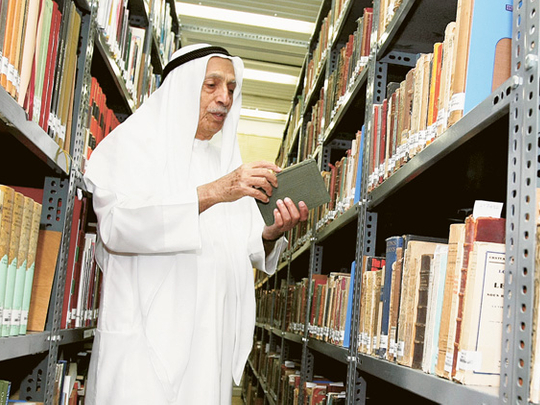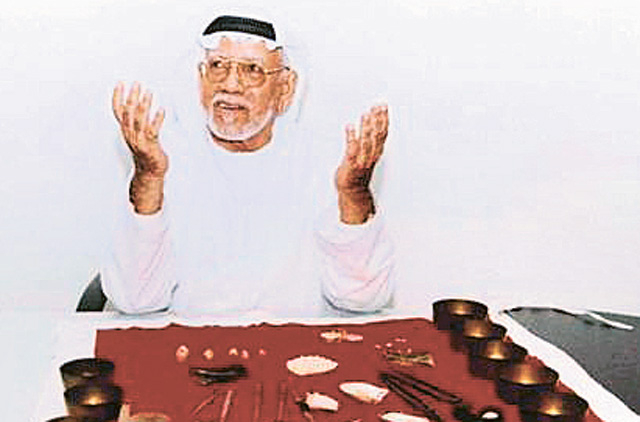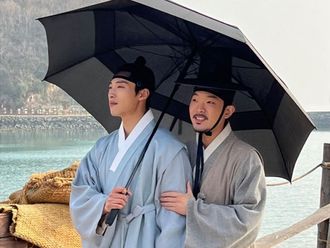
Abu Dhabi: Life was much quieter and simpler in the UAE before oil was discovered and the country became unified under the late Shaikh Zayed Bin Sultan Al Nahyan, Emirati speakers said at the National Centre for Documentation and Research's seminar. The seminar, titled "Memoirs of the Emirates through Oral Narratives", ended on Tuesday, November 30.
"I was born in the district of Shindagha in Dubai in 1930 and I can still remember clearly the way the houses and streets looked… some of the streets would be wide enough for camels to pass [through] while others would be quite narrow and had to be crossed by foot… but they helped to provide shade for pedestrians during the day," Juma Al Majid, a leading businessman and philanthropist, said.
For many families, the most stable form of income came from being a pearl diver or a merchant, with boys as young as seven taken on dhows to learn the trade. This was before Japan entered the market with cultured pearls.
No longer in demand
"The pearl trade and fishing were the principle sources of our income, with entire families taking part… the men would work out at sea and the women would take care of the homes and sell the fish that was brought back...
"For pearls, we would travel all the way to India and Africa to trade with other merchants… In those days, during a good season we would harvest pearls with a total value of Dh60,000-70,000, which would be valued at Dh1m today..
Many benefits
"The pearl industry not only helped to sustain us, but also helped us provide education for our children… after the Japanese entered…. we would make as little as Dh500-Dh2,000 as divers, before oil was discovered," Faraj Bin Butti Al Muhairbi, Chairman of the Emirates Diving Association, who has been connected to the pearl industry for 45 years said.
Soon schools began to be established, the earliest being the Trucial Oman Scout's School in 1954 — which taught Emirati boys — and the Al Khubairat School — established in 1968.
"I joined the Trucial Oman Scout's School, or the Boy's School as it came to be known in 1966…
"I remember our uniform included short trousers, a shirt, a head cover and a band with the school's badge, which was in the shape of a small dagger… we were taught Arabic, arithmetic, and even military subjects such as morse code and physical training… the school was shifted in 1967 from the Al Kalipinya area to Al Merqab and I followed…
"I completed my studies at the Secondary Commerce School, I was offered university and graduate studies in both the US and the UK," Lieutenant General (Ret.) Dr Saif Mohammad Bin Aboud Al Badwawi, Senior Researcher in the court of the Ruler of Ajman from October 2009, said.
"When I came back, I was appointed to the Armed Forces with the rank of Major... and worked at various other posts before retiring," he added.
All agreed that it was due to the great vision and guidance of the late Shaikh Zayed Bin Sultan Al Nahyan that the country prospered and advanced to the stage it has reached and under his son, President His Highness Shaikh Khalifa Bin Zayed Al Nahyan, the country's future seems brighter than ever.
"Whenever I'm asked why the UAE is so stable, I always say it's because of our leaders' great visions and their capacity for tolerance and openness... as well as their drive to ensure that the country remains prosperous and peaceful for many years to come," Al Muhairbi said.











